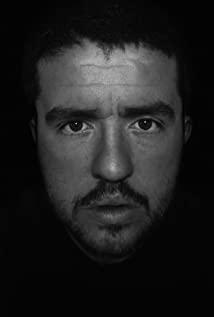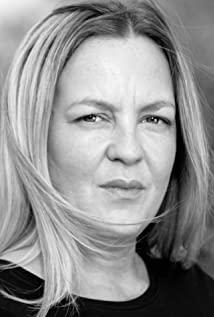On June 8, 1913, suffragette Emily Wilding Davison stormed the Epsom Derby, grabbed the reins of George V, and was running at full speed. The racehorse overturned and died four days later. When this happened, the whole world was in an uproar. One of the most influential leaders of the British feminist movement, Emmeline Pankhurst, called her "one of the bravest fighters among us." The return to power and Prime Minister Asquith's arrogant response has garnered enough attention from the international community.
The feminist movement in Britain can be traced back to the "South African Women and Children Rescue Foundation" founded by Emily Hobhouse during the Boer War. make such an impressive impact. Hobhouse dealt with Governor Milner in South Africa, gave anti-war speeches at home with Lloyd George, and even met Mohandas Gandhi, a lawyer at the time, in South Africa, and spoke to him for his nonviolent creed. Deeply impressed. However, when it comes to the greatest feminist leaders in British history, the Pankhurst family is an inescapable mountain.
The head and core of the family, Emmeline Pankhurst was born in Manchester in 1858 and became a widow at the age of 40. After her husband's death, Pankhurst finds herself suddenly alone with her outstanding debts and four still-to-be-feeding children. She earns her living as a register of births and deaths in a Manchester workers' community, a job that She came into contact with many poor women, which planted the seeds of equality in her mind. In her later autobiography, she wrote: "I began to think about the right to vote for women, which was not only a right, but an urgent need." In 1903, Emmeline founded the Women's Social and Political Union and It was stipulated that only women could be admitted.
Emmeline Pankhurst has two daughters who are equally annoying to the authorities. The eldest, Christabel Pankhurst, has always been a loyal ally of her mother, her temperament is as refined as that of her mother, and she Planned a series of violent activities at the WSPU. The younger sister Sylvia Pankhurst (Sylvia Pankhurst) was very different from her sister and mother in terms of political views. She not only resented her mother's violent actions, but also completely broke with her mother in the later World War I. The Pankhurst family usually wears WSPU-themed colors in public: skirts in a mix of green, purple and white, which represent purity, hope and dignity—the beautiful ideals of the Women’s Union. Before the war, larger women's advocacy groups such as Charlotte Despard (interestingly, the anti-war, socialist, and suffragette who was also the head of the British Expeditionary Force in the prewar period) The left-wing Independent Labour Party known as the "ILP" backed by Commander Sir John French's sister) - has achieved greater long-term benefits for women through greater participation in British political movements, but Pankow, who is keen on radical riots The Hearsts refused to work with them, mainly because the WSPU does not support male parliamentary candidates of any party. To counter this, Despade formed the "Women's Liberty League" in September 1907, and the following year developed 53 chapters across the country.
So far alone, the feminist movement and the cause of peace in Europe have looked too smooth. Sylvia fell in love with the leader of the Independent Labour Party, James Keir Hardie, in 1906. Earlier, Hardy attended the Second International Congress in Amsterdam in 1904. He witnessed the embrace of the representatives of Russia and Japan, and there was warm applause at the scene - at this time, the Russo-Japanese War was in full swing. At the later Copenhagen Congress, Hardy, with the support of the Frenchman Jean Jaurès, proposed that workers in all countries should immediately declare a strike in the event of a full-scale war. The Second International has more than 30 member states, and every year workers from all over Europe take to the streets to hold parades on May Day. Germany's Social Democratic Party has always been the largest party in parliament, and Kiel Hardy was stunned by the large proportion of women in its party members. In the United States, Eugene V. Debs, speaking on the "Red Express" train, won 900,000 votes. The next total war seems far from the world, and the utopia of "freedom to walk, sing and meditate" in Jean Jaurès's words seems within reach.
When the early summer of 1914 came, Gavrilo Princip — a fervent follower of Russian anarchism and Friedrich Nietzsche — pulled the trigger and shot Archduke Ferdinand in the carotid artery. What he failed to foresee was that he also struck the diplomatic balance carefully maintained by Edward VII in Europe. The pacifists, smelling a disturbing smell in the air, made their last struggle before the war. The "House of the People" in Brussels welcomed Hardy, Jaurès, Rosa Luxemburg of Germany and socialist comrades from other countries. On the night of the declaration of war between Austria-Hungary on July 28, Jaurès roared in front of angry Belgian workers, holding the arm of the German Social Democratic Party chairman Hugo Haase, and more than 7,000 people poured into the streets, singing " The Internationale", the slogan "War to war!" echoed through the streets of Brussels.
They failed to stop the war.
The Kaiser officially declared war at the end of July, France issued a mobilization order on the same day, and Nicholas II had also issued a war mobilization... The pacifist bubble burst, quoting several passages from the historian Barbara Tuchman about the almost Description of the surging frenzy:
In Belgium, after King Albert's eloquent speech, "the streets and the streets are full of enthusiasm and madness. The army, which has always been despised, is now a hero. People shout: Hit the Germans! Kill the murderers! Long live Belgian independence. !"; in Paris, volunteers marching on the boulevard displayed their own banners "Luxembourgers will never be Germans!" "Romania is loyal to its Latino mother!" "Italian freedom is bought by the blood of the French. "Spain and France are sisters!" "The English are willing to fight for France!" "The Greeks love France!" "The Scandinavians of Paris!" "The Slavs stand with France!" "Latin Americans swear to the death to defend the mother of Latin American culture!" "Alsatians fight back home!"; in Berlin, the Reichstag members gathered, the Kaiser stood beside the chancellor "raised his voice: from today, I don't recognize the parties, only the Germans! Then ask the leaders of the parties, if they agree with him, to come forward and shake his hand. . . Ecstatic cheers."
Keir Hardy still didn't give up, shouting at a weekend anti-war rally: "You have nothing against the Germans! Neither do the German workers nor their French comrades... I was told, yes International treaties force us to declare war. Who drafted the treaty? There is no opinion of the people in the treaty!" He might be disappointed. A few weeks ago, the German Social Democratic Party, which also claimed that the workers of the world were united, set an example: only 14 of the 111 Social Democratic Party representatives who participated in the war loan vote voted against; the French authorities were still worried that the anti-war pacifist movement would threaten The quality of the reservists, only 1.5% did not show up, and 80% of the subversive list drafted by the French government entered the army; at another rally in which Hadi participated, the crowd was far larger than the anti-war crowd Singing "Long Live Britain", the rally was eventually forced to disband.
They are not the only ones bowing to the war. Soon after the war, Emmeline Pankhurst and Christopher Pankhurst made a 180-degree change in their political attitudes: they still called for women's equality, but they also called for young people to the battlefield. Emmeline gave the WSPU orders to end all activities; the new issue of Suffragettes was cancelled; and the Pankhursts even started publishing the militaristic magazine Britannia. Their various actions favorable to the war won the favor of the authorities, and finally they allocated special funds to organize activities. It was at this time that Sylvia, who was still actively fighting the war, completely cut off contact with her mother and sister. After listening to a speech made by her mother to promote the war, Sylvia wrote in frustration, "I listened to her speech with sadness, and then I made up my mind to step up to write books and words for the cause of peace." She proved it with actions Her promise was fulfilled: more than a hundred British women, organized by Silvia, sent a letter to German and Austrian women, saying "Let us not forget the pains that have bound us together" In the past...we must push for peace together...we are your sisters in this tragic time."
Europe has no shortage of pacifists like Sylvia and Hardy: Jaurès was nearly killed by chauvinists; Rosa Luxemburg kept organizing peaceful rallies at home; philosopher Bertrand Russell Ghostwritten "I Appeal" for Margaret Hobhouse, accusing the unreasonableness and stupidity of war; Emily Hobhouse attended the 1916 Civil Peace Conference in Switzerland, even alone Met with German Foreign Minister Gottlieb von Jagau, fantasizing that his victory in the Boer War could be repeated; Alice Wheelden exhaled a swan song after being slandered and imprisoned: "The world is my country. After the provisional government of Russia was overthrown, a rejoicing Bertrand Russell wrote: "Because of the belief that the four seas are brothers, more than a thousand people are imprisoned in this country... Today, those who live in the world are in darkness. Those who were forced to fight at that time have realized that ... the world is no longer as dark as it used to be, and the new joy and hope that each of us has in our lives is felt by them in prison."
After this kind of seeding, is Emmeline Pankhurst and her eldest daughter really unreasonable - not necessarily. They may have encouraged hundreds of thousands of British youth to go to the battlefield, but their feminist cause has never stopped. After obtaining the government's acquiescence, the British feminist cause can be called a sharp turnaround. Lloyd George had dispatched Christable Pankhurst to post-revolutionary Russia. In Petrograd, Christbull met the first female army commander in human history and the female corps she led. Maria Bochkareva, who was 25 years old at the time, formed the "Black Widow Battalion" , which had successfully captured several German trenches. Today, we cannot help but ask, without the determination of the Pankhurst mother and daughter to suddenly turn to war, could the British government have given women the right to vote leniently after the war ended? Without the international reputation that Pankhurst and the government achieved, would Germany, Austria, France, and the United States still grant women universal suffrage in a short period of time? These answers are unknowable. But the only thing that is certain is that to this day, the ideal of "brothers in the four seas" is still just an ideal, and prejudice and persecution have never been eliminated. Peace is always just a bubble.
One day in 1928 - the year when Douglas Hague, the British commander of the Great War, died of a sudden heart attack - the coffin of Emmeline Pankhurst was surrounded by more than 10,000 of her followers. died in his hometown.
Christopher Pankhurst came to America after the war and devoted the rest of his life to religious work, eventually dying in Santa Monica in 1958.
Sylvia Pankhurst spent the rest of her life in Ethiopia, where she was awarded various medals by Haile Selassie I, and finally died in Addis Ababa in 1960.
View more about Suffragette reviews











